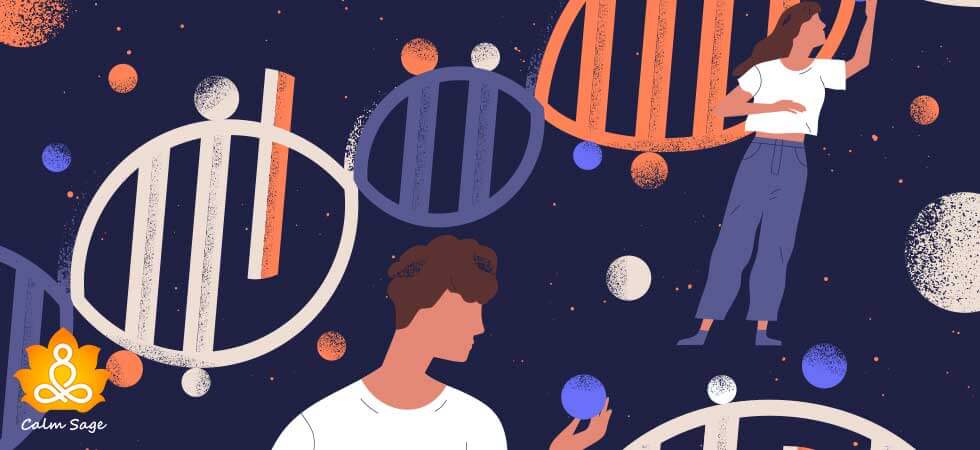Nature vs Nurture – Introduction to Psychology

Do you often think over the point of why am I behaving in a certain way?
Is it something that I inherit or the social circle I belong to is leading to this?
The answer lies in the nature vs nurture debate. Where nature attributes the reason for our behaviors to our inherited biological characteristics and nurture focuses on the role of environmental forces. But, that’s not it! There is a lot more associated with it.
Before understanding the Difference between nature and nurture approach of psychology let us make a few things clear:
- It is an ongoing debate
- There is no right or wrong side of it
- Both nature (heredity) and nurture (environment) are backed with research
Let us understand this nature vs nature theory in detail!
Difference between Nature and Nurture:
History of Nature vs Nurture Debate
With not as much data to mark the beginning of this debate the starting date couldn’t be identified. But, it is claimed to be one of the oldest and ongoing debates in the field of psychology. With the development of theories and research, the experts of the field kept supporting one notion over the other. While on one hand you may read the literature by Plato, Desecrate, and Nativists supporting the notion that our behaviors are the results of what we inherit with little or no influence of our environment. On the other hand thinkers like John Locke hold the idea of tabula rasa i.e., a blank state of mind, which is colored by our experiences of life. This clears that nature and nurture
debate is ongoing and there is no stand to take.

The Famous Twin Study
At the heart of nature vs nurture debate lays the twin studies! Various studies have been conducted on twins and adopted children to study whether it is nature or nurture influencing our behaviors, personality, and other concepts of life.
Studies found, when twins are raised apart their genetics (nature) tend to play a role in their overall development.
It was also found that the environment (nurture) did not have much role to play when twins were reared together. But when raised apart, the environment was found to influence the psychological attribute being studied.
Impact of Nature on Mental Health
If we try to understand the role of nature (heredity or genetics) on mental health then a large pool of research will support the notion of the influence of our genes on our mental well-being. Various mental health conditions are time and again found to link with genetics.
If there is a family history of mental illness then chances of it to showcase in the next generations are likely to increase manifold. Just like other health conditions.
Data from the famous twin studies have shown if a twin is diagnosed with a particular mental health condition then the chances of the other twin to undergo the same condition increases by 50%. Thus, indicating that nature does have a role to play in influencing our mental health.
Impact of Nurture on Mental Health
While the above discussion supports that genetics predispose us to various mental health conditions ranging from anxiety to addiction this definitely doesn’t imply that nurture (environment or surroundings) has no role to play here. In fact here the nature and nurture debate goes hand in hand.
A famous study by James Fallon found people who were predisposed chronic mental health conditions when placed in a nurturing and loving environment not only became successful in their life but also were prevented from developing the traits of mental health conditions. Thus, clearly the role of nurture in development of an individual
Example of Nature vs Nurture Debate
As discussed above both nature and nurture tend to have an influence on our physical and mental health along with various psychological attributes.
Let us understand this debate better with the help of an example.
The psychological attribute that we are talking about is Language! This example of nature vs nurture will help us understand better.
- Nature Approach to Language
The nature approach suggests that the language development of an infant in different cultures and around the world goes almost through the same stages. This further supports the notion that we have an in-built language tool and our brain is pre-wired to learn the language (Naom Chomsky). So, it is in our genes to learn and comprehend language.
- Nurture Approach to Language
According to nurture approach an infant learns to speak and comprehend language because they learn it from their environment. The immediate surrounding that an infant is placed in helps in the development of language. Through interaction with parents and family members, they learn to speak and understand language.

Interaction of Nature and Nurture
With all the differences identified it is time to check the interaction between these two phenomena. Although there are numerous examples of nature and nurture interaction we will be discussing the most researched ones.
- It is found that if a child is coming from a family where everyone is tall, the genes are likely to be inherited. But, if the same child is deprived of a nourishing environment then s/he might not be able to attain the height that s/he might otherwise have (in a healthier environment).
- Another example of nature or nurture interaction is intelligence. Studies have time and again found that kids with high IQ parents have high IQs themselves. But, if adopted and raised away from the parents in a deprived environment the chances of IQ to not develop to its highest level are evident.
Putting Nature vs Nurture Debate in a Nutshell
The nature or nurture debate is still alive in psychology. However, understanding the development of psychological attributes and mental health should be done with a balanced point of view. In other words, rather than thinking of our behavioral outcomes in terms of extremes, let us have a balanced vision. Both nature and nurture have an equal and important role to play in our overall development.
We hope this helped you understand the difference between nature and nurture and cleared your doubts around the same. However, if you have any question, drop it down in the comment section below.
Keep reading on Calm Sage.
Wishing you happiness…




















